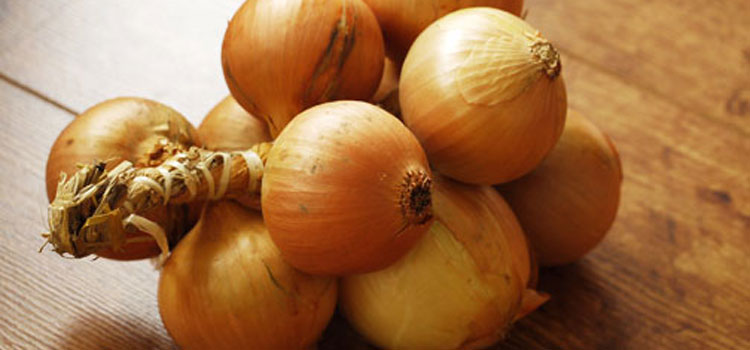Have you been caught crying over spilled milk? What about a chopped onion? We bet just by thinking about it, you can sense that pungent aroma as it wafts up your nostrils, just before the fumes reach your eyes. It is no secret that chopping onions can bring tears to your eyes, but the mystery lies in the “why?”
When you slice through an onion, you are activating a chemical process you wouldn’t willingly choose to recreate in your high school chemistry lab. But the whole operation starts way before that onion hit the cutting board.
The Birth of the Onion
Onions come in many varieties, but of those common onions you either love or hate, the fleshy part used in your savory dishes is the bulb of the crop. This bulb grows and matures underground, surrounding by soil. While packed in its dark and dirty surroundings, the bulb absorbs sulfur from the soil. This process aids in the creation of amino acid sulfoxides, a volatile organic compound. And we know what volatile means when talking about molecules: potentially smellier particles as they move through the air faster than less volatile counterparts.
But the sake of time, we’ll skip over all the less smelly steps between birth and your kitchen.
The Chemistry of Chopping Onions
When you first slice through an onion, you trigger a series of fast reactions that ultimately lead to your tears. When you chop an onion, you damage cells and release their contents allowing enzymes and those amino acid sulfoxides to mix. These enymes, called alliinase, got to work on those amino acid sulfoxides, breaking them down into sulfenic acid. Of the sulfenic acids created in the alliinases wake, a specific type called 1-propenesulfenic acid reacts with yet another onion enzyme – lachrymatory factor synthase. Their love child give us syn-propanethiol S-oxide, our favorite little tear gas. All of these reactions occur in mere microseconds, all leading up to the real tear-jerker.
It Burns! It Burns! Chopping Onions
We finally leave the onion to travel through the air – upwards to your reluctant nostrils and eyes. That syn-propanethiol S-oxide gas makes its way through the air only to react once more, this this time with the water in your basal tears (the ones that lubricate your eye balls and eyelids). Together they form sulfuric acid, the ultimate culprit of the burning sensation. The sulfuric acid arouses sensory neurons in the eye (and no, not in the good way) leading to stinging and burning sensations. In an attempt to save themselves from the pain, your tear ducts rush to produce the tears they hope will dilute the acid and flush it away.
Ease The Pain of Chopping Onions
So now we understand the intricacies of how chopping onions makes you cry, but you’re bound and determined to remain stone-faced and eat your onions too. Well, there are a few tips and tricks out there to help:
- Chill your onion in the refrigerator for at least 30 minutes prior to demonstrating your knife skills. This slows all of those chemical reactions that leads to the tears. You just might buy yourself enough time to finish chopping before blubbering.
- Chopping onions under running water or submerged underwater traps that nasty sulfuric gas protecting your eyes from watering unless that Sarah McLachlan ASPCA commercial comes on.
- Leave the root end intact while chopping onions to reduce the concentration of irritating gases. The root holds the onion’s highest concentration of sulfur compounds.
- Use an onion chopper. These handy little devices do all the work for you, and keep the tears to a minimum.
- Keep chopping onions! The more often you are exposed to the sulfuric acid produced in your onion chop, the less it irritates your sensitive eyes. Think about it as tolerance building exercise.
Now if only you could get that onion smell off of your fingers…
Want more onion chopping tips? Lifehacker tested the top tear-stopping methods and bring you the verdict.
Need to know more about onions, check out the National Onion Association’s website. Yes, it’s a thing.

